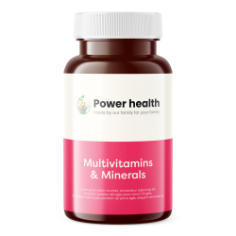Top tips for mineral absorption:
1. Diverse Diet for Comprehensive Mineral Intake
The first step in aiding mineral absorption is to consume a diverse range of nutrient-rich foods. Different minerals often interact with each other, and a well-balanced diet increases the chances of absorbing a broader spectrum of essential minerals. Include a colourful array of fruits, vegetables, whole grains, nuts, and seeds in your meals.
2. Mindful Cooking Techniques
The way you prepare your food can significantly impact mineral availability. Some minerals are more easily absorbed when cooked, while others are better consumed raw. For example, lightly steaming vegetables helps break down cell walls, making certain minerals more accessible. On the other hand, certain fruits and vegetables are best enjoyed in their raw state to preserve their nutritional content.

3. Pairing Vitamins with Minerals
Vitamins and minerals often work in tandem, with some vitamins enhancing the absorption of specific minerals. Vitamin C, for instance, can improve the absorption of iron found in plant-based foods. Incorporate vitamin-rich foods like citrus fruits, berries, and leafy greens to complement your mineral intake.
4. Healthy Gut, Healthy Absorption
Maintaining gut health is crucial for effective mineral absorption. Probiotics, found in fermented foods like yogurt, kefir, and sauerkraut, promote a healthy balance of gut bacteria. A well-functioning digestive system ensures that minerals are broken down and absorbed efficiently.
5. Mindful Calcium Intake
Calcium is vital for bone health, but its absorption can be influenced by other dietary factors. Ensure an adequate intake of vitamin D, which supports calcium absorption. Additionally, be mindful of excessive caffeine and high levels of oxalates in certain vegetables, as they can inhibit calcium absorption.
6. Balancing Phosphorus and Magnesium
While phosphorus is essential for bone health, an imbalance with magnesium can interfere with its absorption. Include magnesium-rich foods like leafy greens, nuts, and whole grains in your diet to maintain a harmonious ratio between these two minerals.
7. Moderate Protein Consumption
Protein plays a role in the transportation of minerals throughout the body. However, excessive protein intake, especially from animal sources, may lead to increased excretion of calcium. Maintain a balanced approach to protein consumption, incorporating plant-based sources like legumes and tofu.
8. Minimize Antinutrients
Some foods contain antinutrients, compounds that can hinder mineral absorption. Phytic acid, for example, found in grains and legumes, can bind to minerals and reduce their bioavailability. Soaking, sprouting, or fermenting these foods can help minimize the impact of antinutrients.
In the quest for optimal health, it's not just about what you eat but also about how your body absorbs and utilizes nutrients. By embracing a diverse and balanced diet, incorporating mindful cooking techniques, and paying attention to synergies between vitamins and minerals, you can empower your body to make the most of the essential minerals it needs.Remember, small changes in your dietary habits can lead to significant improvements in mineral absorption and overall well-being.
For high-quality multivitamin and mineral supplements, consider exploring Power Health multivitamins.












